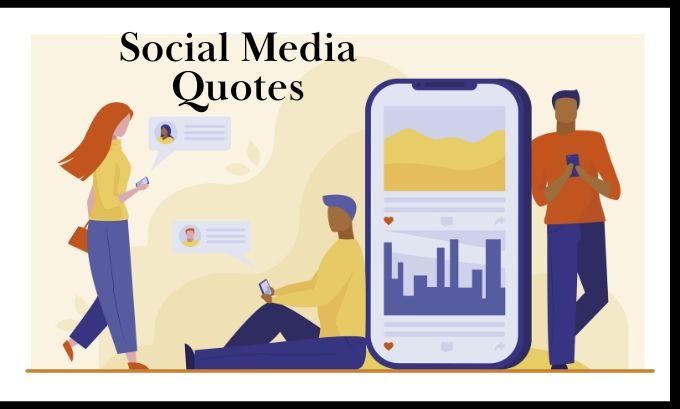Social Media Is Toxic Quotes: What Experts, Whistleblowers, and Research Reveal
Quick Answer:
Many people say social media is “toxic.” Platforms like Instagram often show negative posts because their algorithms reward outrage and drama. This can make users—especially teens—feel anxious, sad, or insecure about their bodies.
Whistleblowers like Frances Haugen and experts such as Bryn Austin have revealed that Facebook (Meta Platforms, Inc.) knew about these problems. Still, the company failed to fix them.
Today, the issue has grown so big that U.S. lawmakers are talking about federal rules for social media. The debate is no longer just about apps. It’s now about accountability, safety, and how much power big tech should have over our lives.
Table of Contents
Why Do People Say “Social Media Is Toxic”?
People call social media toxic because it makes users compare themselves to others, shows harmful content, and keeps teens hooked on stress and quick dopamine hits.
The phrase “social media is toxic” points to real problems:
- Instagram feeds can hurt body image.
- Facebook (Meta Platforms, Inc.) ignored warnings from inside the company.
- Social media rewards anger, fights, and harmful posts.
In short, toxicity is not just about rude comments. It is part of how these platforms are made.
The Instagram Case Study: Why It’s Central to Toxicity Discussions
Instagram can harm teen mental health. It shows many photos and uses algorithms to keep users online.
Frances Haugen, a former Facebook worker, shared documents showing Instagram made teens feel worse about themselves.
Bryn Austin, an expert on eating disorders, said Instagram makes teens compare themselves too much. This can cause a “dangerous spiral.”
Studies show teens, especially girls, are very affected by filtered and “perfect” images.
Real-Life Scenarios: How Toxicity Shows Up Online
- A teen scrolls Instagram late at night. They see endless pictures of influencers with “perfect” bodies. This can hurt body image and cause depression
- A parent notices their child is anxious, isolated, and defensive after being online. The cause is negative comparison from algorithm-driven feeds.
- Adults are not safe either. Many get stuck in echo chambers full of anger and outrage.
These examples show that real experiences match what experts have warned about.
Strengths of Social Media (Yes, There Are Some)
Not all social media is bad. Some positives are:
- Connection: Talk to friends and family anywhere.
- Awareness: Share causes like mental health or climate change.
- Opportunities: Teens and young adults can find jobs, scholarships, or ways to be creative.

Areas Where Social Media Becomes Toxic
- Body image problems: Mostly teen girls are affected.
- Addictive algorithms: They show harmful content again and again.
- No accountability: Facebook/Meta ignored warnings inside the company.
- Cancel culture and outrage: Young users with strong emotions drive it.
Comparison Table: Social Media Strengths vs. Toxic Effects
| Aspect | Positive Use | Toxic Effect |
| Connection | Keeping in touch with family/friends | Cyberbullying, FOMO (fear of missing out) |
| Inspiration | Sharing art, stories, activism | Unrealistic standards, body image issues |
| Information Access | Quick updates, news | Misinformation, conspiracy theories |
| Mental Health Support | Online support groups | Anxiety, depression, suicidality in teens |
| Expression | Creative outlets for youth | Cancel culture, trolling |
U.S. Federal Regulation: Is Help Coming?
Rules are starting, but big gaps remain.
After Haugen’s testimony, the U.S. Congress held hearings on algorithm harm.
Proposals include checking algorithms and protecting children online.
Experts like Bryn Austin say oversight is needed because platforms will not self-regulate.
This shows more people now see that social media algorithms can hurt society.
FAQ: Social Media Is Toxic Quotes
Q1: Why do people say social media is toxic?
It shows harmful comparisons, false information, and anger.
Q2: What is the most toxic social media platform?
Instagram is often the worst for teen mental health, especially girls.
Q3: What did Frances Haugen reveal?
She said Facebook (Meta) knew Instagram hurt teens but hid it.
Q4: How does social media affect teen mental health?
It can cause anxiety, depression, and poor body image.
Q5: Can regulation fix toxic social media?
Experts say strong federal rules are needed to control harmful algorithms.
Q6: Are there any positives to social media?
Yes—staying connected, spreading awareness, and finding opportunities—but harms still outweigh them for many.
Conclusion
The phrase “social media is toxic” shows the truth about harmful platforms. Instagram can hurt teen body image, and Meta hid research about it.
Experts like Bryn Austin and whistleblowers like Frances Haugen show this is more than just mood—it is a public health issue.
As U.S. lawmakers debate social media rules, one thing is clear: without accountability, toxic cycles will keep going. Parents, teens, and society must push for safer, clearer platforms.
References
- Haugen, Frances – Testimony before U.S. Congress (2021).
- Austin, Bryn – Harvard T.H. Chan School of Public Health, expert on eating disorders.
- Wall Street Journal – “Facebook Knows Instagram Is Toxic for Teens” (2021).
- U.S. Congressional Hearings on Social Media Regulation (2021–2023).


